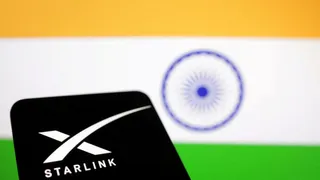- By Alex David
- Sun, 26 Oct 2025 10:27 PM (IST)
- Source:JND
Starlink is quietly building the backbone of its India operations. According to an Economic Times report, Elon Musk’s satellite internet venture plans to establish nine gateway earth stations across major Indian cities, including Mumbai, Noida, Chandigarh, Kolkata, and Lucknow, preparing the ground for a commercial rollout of its high-speed satellite broadband service.
Here’s the thing — this isn’t just a tech expansion; it’s also a test of compliance. Starlink has reportedly applied for 600 Gbps capacity over India through its Gen 1 constellation, with spectrum assigned provisionally to demonstrate adherence to national security protocols. The Department of Telecommunications (DoT) has allowed the import of 100 Starlink terminals for testing, but under tight scrutiny to prevent misuse, particularly given the sensitive nature of satellite communications.
ALSO READ: Telegram CEO Pavel Durov Offers To Buy Back Stolen Louvre Jewels: Sparks Online Debate On Security
Security Comes Before Speed
The Indian Home Ministry has applied limits—only Indian citizens can work these gateway stations until foreign staff are cleared by security. It comes after previous cases where Starlink terminals were spotted in border regions, purportedly facilitating unauthorised communications. In a 2024 case, they found Starlink satellite terminals along with weapons in Manipur and another unauthorised setup was detected in the Andaman and Nicobar Islands.
Now, Starlink must follow strict satcom security rules:
- All data from the trial phase must be stored within India.
- Details of every terminal (user names, addresses, and geocoordinates) must be shared biweekly with DoT and security agencies.
- Law enforcement can access and inspect all satellite communication data.
- All India-bound or India-origin traffic must pass through local gateways.
ALSO READ: Microsoft Clarifies Gaming Copilot Screenshots Do Not Train AI, Addresses Privacy Concerns
The Bigger Picture
If cleared, Starlink could revolutionise rural connectivity in India — bringing broadband access to remote areas with low fibre penetration. But the company’s progress depends on striking the right balance between India’s security mandates and its own global, decentralised internet model.
For now, Starlink’s India plan is on the launchpad — but its engines won’t fire until it passes the country’s toughest test yet: trust.

